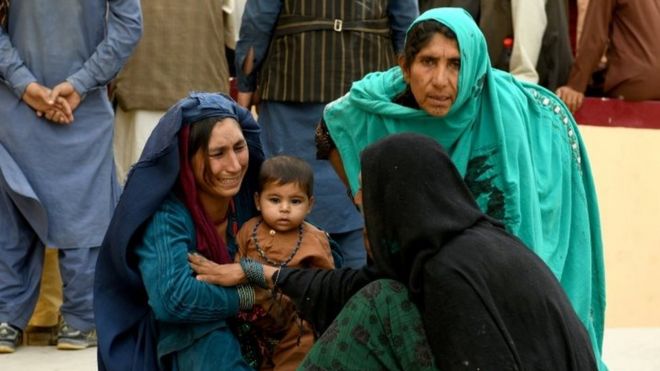Afghanistan war: 'Historic' peace talks with Taliban begin

Sept. 12 (BBC): The first peace talks between the Afghan government and the Taliban have begun in the Gulf state of Qatar, after months of delay.
US Secretary of State Mike Pompeo called the meeting "historic" as he flew to Doha for the opening ceremony.
The talks were due to start after a US-Taliban security deal in February.
But disagreements over a controversial prisoner swap stalled the next stage, as did violence in Afghanistan, where four decades of war are at a stalemate.
A delegation of leading Afghans left Kabul for Doha on Friday - 11 September, the day 19 years ago of the deadly attacks on the US which led to the end of Taliban rule.
The head of the delegation, Abdullah Abdullah, said they were seeking "a just and dignified peace".
On Thursday the Taliban confirmed they would attend, after a final group of six prisoners were released.
What to expect from the talks
These are the first direct talks between the Taliban and representatives of the Afghan government. The militants had until now refused to meet the government, calling them powerless and American "puppets".
The two sides are aiming for political reconciliation and an end to decades of violence, which began with the 1979 Soviet invasion.
The talks were meant to begin in March but were repeatedly delayed by a dispute over the prisoner exchange agreed in the February US-Taliban deal, as well as violence in the country.
The separate but linked US-Taliban agreement set out a timetable for the withdrawal of foreign forces, in exchange for counter-terrorism guarantees.
That agreement took over a year to finalise, and the government-Taliban talks are expected to be even more complicated. Many worry that fragile progress made in women's rights could be sacrificed in the process.
The talks also present a challenge to the Taliban, who will have to bring forward a tangible political vision for Afghanistan. They have so far been vague, stating they wish to see an "Islamic" but also "inclusive" government.
The talks may provide more evidence of how the militant group has changed since the 1990s, when they ruled using a harsh interpretation of Sharia law.
Recent News

Do not make expressions casting dout on election: EC
14 Apr, 2022
CM Bhatta says may New Year 2079 BS inspire positive thinking
14 Apr, 2022
Three new cases, 44 recoveries in 24 hours
14 Apr, 2022
689 climbers of 84 teams so far acquire permits for climbing various peaks this spring season
14 Apr, 2022
How the rising cost of living crisis is impacting Nepal
14 Apr, 2022
US military confirms an interstellar meteor collided with Earth
14 Apr, 2022
Valneva Covid vaccine approved for use in UK
14 Apr, 2022
Chair Prachanda highlights need of unity among Maoist, Communist forces
14 Apr, 2022
Ranbir Kapoor and Alia Bhatt: Bollywood toasts star couple on wedding
14 Apr, 2022
President Bhandari confers decorations (Photo Feature)
14 Apr, 2022











